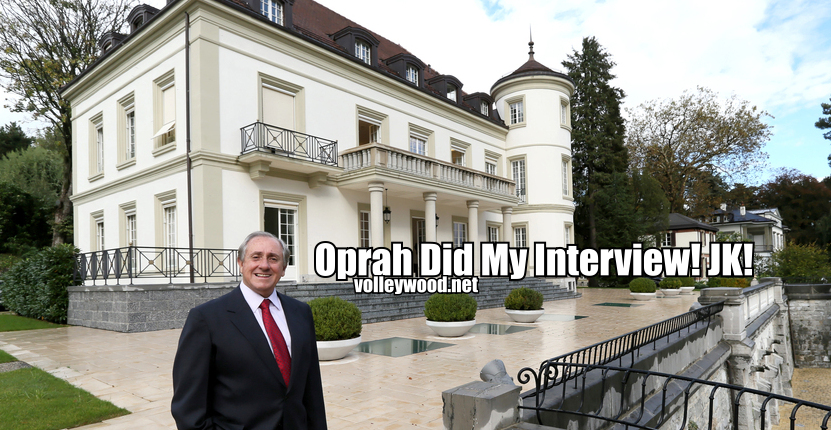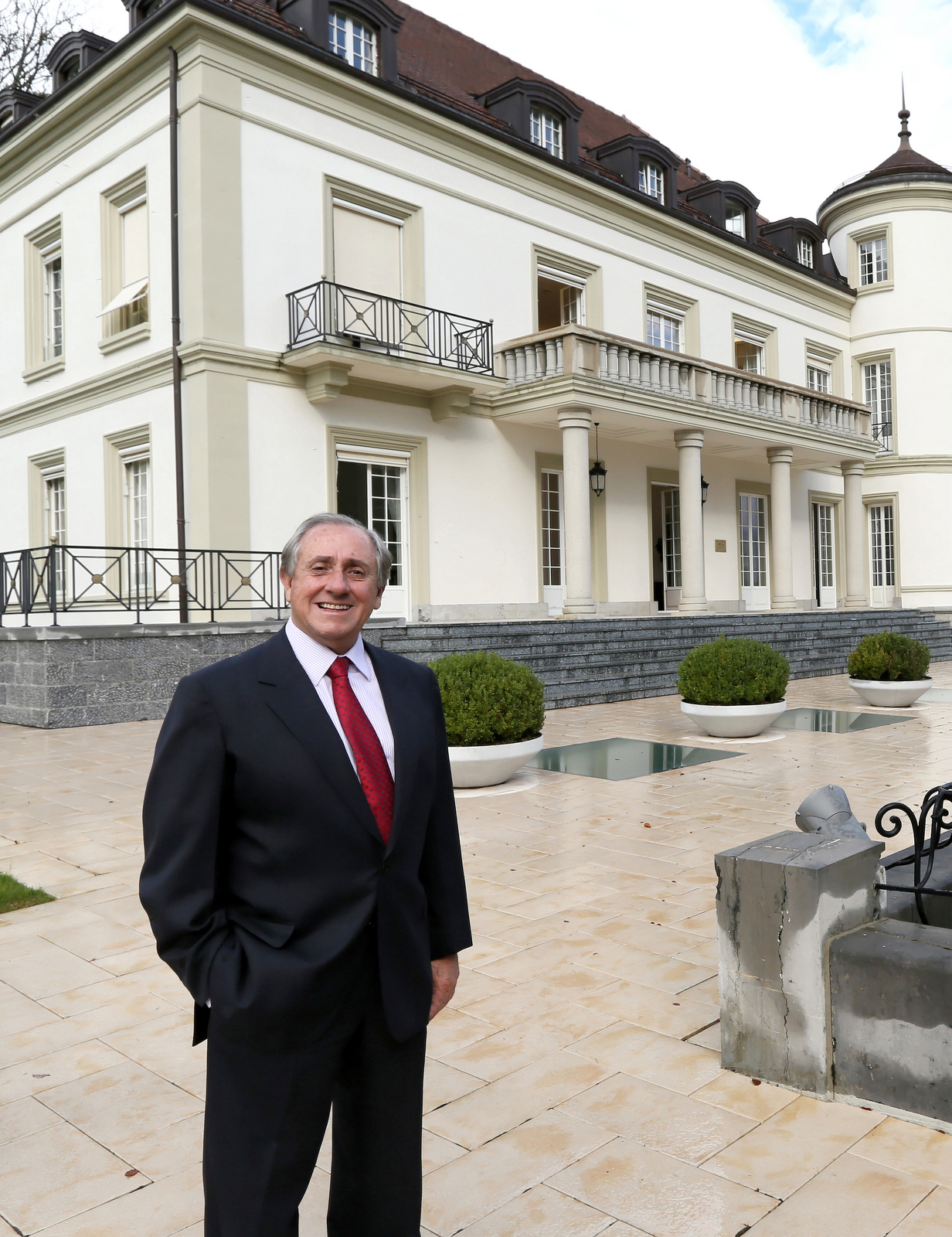We wonder who did the interview knowing that the interviewer is labeled as “FIVB”. Maybe Oprah? Hah! We kid! We kid!
Anyways…
Here’s a really nice article released by the FIVB which features a question and answer portion with FIVB President Ary Graça.
After his election to head of the International Volleyball Federation (FIVB) in September 2012, President Dr. Ary Graça F° promised to work towards modernising and streamlining the way in which the sport and organisation is run. FIVB had the opportunity to sit down with the President to take stock of the current situation and to discuss the Brazilian’s future plans.
FIVB: You have spoken about restructuring the FIVB to ensure that the organisation continues to meet the demands of the sport, its athletes and fans. What measures have you put in place in your short time at the helm?
President Graça: “My first directive was to conduct an audit of our current working practices and organisational structure. This has assisted us greatly in building on our management model to ensure that our projects are realised in the most efficient manner possible.
“We have also strengthened our financial and economic strategies, and continue to ensure that our internal workings are communicated in as transparent a manner as possible to all our continental and national federations.
“We are also looking closely at the Japanese model of marketing the sport in its region, as we feel there are some lessons of benefit to the FIVB. Also, we aim to continue working towards more openness, mutuality and cooperation in our dealings with our stakeholders.”
FIVB: What do you believe should be done at the grassroots level to help advance the spread of the sport around the world?
President Graça: “In order to encourage the development of national volleyball federations, each national manager must be given the requisite training in order to organise a professional level volleyball event at the national and local levels.
“The FIVB is ready to provide assistance in terms of basic project management know-how and in helping local organisations strengthen their partnerships with governments and the private sector.
“It is important for the FIVB to lead the way and to provide a model for development that is country specific so as to work with the local resources in a manner that is financially and economically viable. We need to continue our work on the Development Centres to ensure that they remain effective and economically viable and that their organisational structure is kept flexible so as to accommodate the needs of all its members.
“To this extent it is necessary to encourage national government to continue supporting the development of volleyball even in the face of recession. We can do this by encouraging our national federations to forming partnerships with their local governments and authorities. Only through such collaboration can we achieve tangible results.
“We are also working on ways to build on the work that has already been done through our nine development centres around the world, with special emphasis on beach volleyball development.”
FIVB: Changes have already been made to the structure of many FIVB properties so as to enhance the participation levels in these international tournaments. Many are calling for changes to the game itself in order to make it more appealing. What are your thoughts?
President Graça: “In order for our sport to stay current and appealing, a revision of our rules, laws and regulations is inevitable. To this end we are also working with experts to try and streamline certain areas of the game so as to improve coordination at the international level and provide fans with a more exciting sport to follow.
“The adoption and use of technology such as the Challenge System will improve the confidence level of players in the game.”
FIVB: What is being done to promote the sport of volleyball to the public around the world?
President Graça: “We are building on our marketing, advertising and communication strategy to enhance the visibility of our sport. The aim is to provide an integrated and comprehensive agenda for sponsors and broadcasters to ensure that we are all working towards a common goal.
“We know that this requires strong collaboration with broadcasters around the world to ensure that we are providing a high quality product to the masses. Together we are looking at formats that we believe will benefit athletes and bring fans closer to the excitement and action of the game.
“Social media will figure prominently in this plan as it provides an opportunity to increase our fan base by allowing our sport to be consumed in ways that today’s generation finds more appealing. It also opens a whole new level of communication with our fans around the world.
“It is also necessary to find ways of promoting events organised by continental and national federations in order to give the sport more weight at the local community level. We also have an opportunity now to use the 2016 Olympic Games as a platform on which to promote our sport over the next four years.”
Thoughts?


